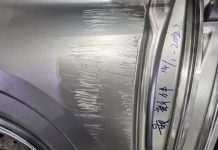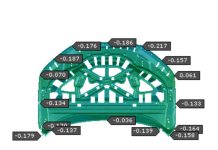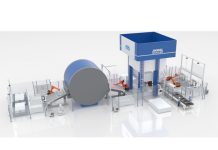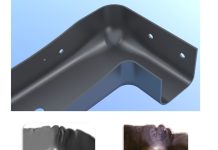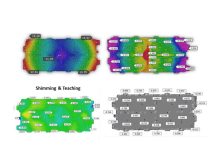Introduction
While many universities offer technology programs, a few stand out from the competition. These institutions are distinguished by their unique offerings, robust industry connections, and innovative teaching methods. Imperial College London’s Metal Processing Technology course exemplifies these attributes, offering a comprehensive and distinctive educational experience.
In this article, we explore the specifics of this course, underscoring its pivotal role in producing graduates who are not only primed for the industry but also command impressive starting salaries year after year.
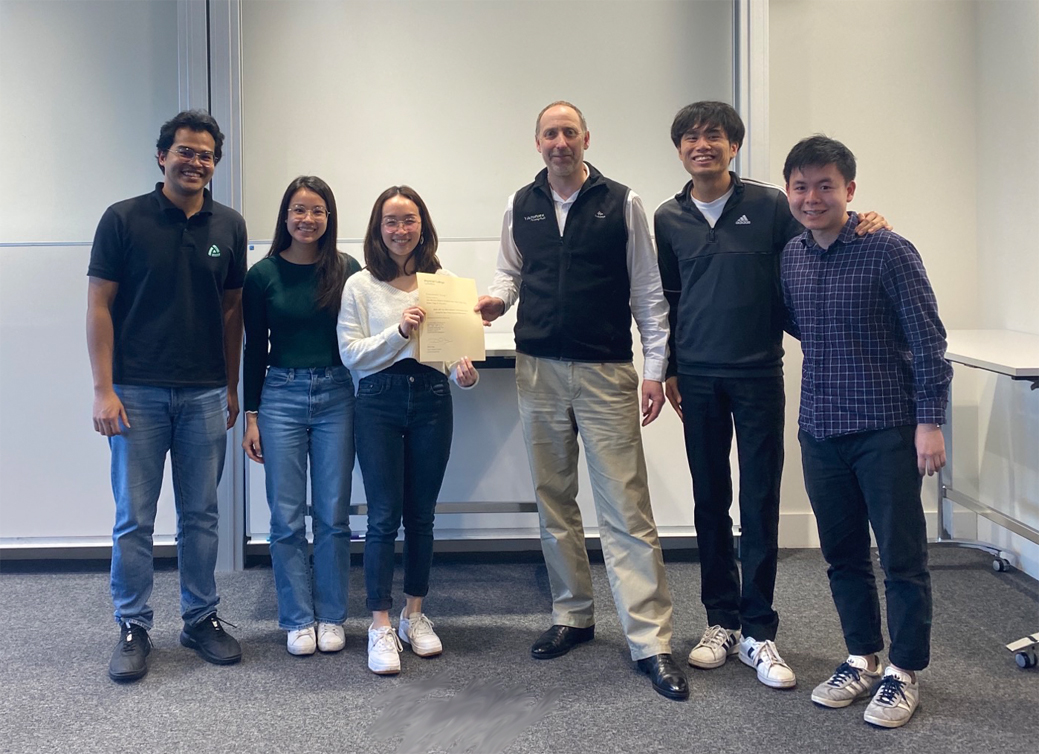
2023 Award for Best Finite Element Simulation
with AutoForm’s Dave Ling
What is the MPT course?
The MPT, or Metal Processing Technology course, is an advanced technical program offered by the department of Mechanical Engineering at Imperial College London, focusing on contemporary metal processing technologies. This course provides an in-depth overview of various technologies, including forging, casting, forming, and additive manufacturing, with a particular emphasis on sheet metal forming. It thoroughly examines the intricacies of modeling, design, simulation, and other facets of stamping, alongside sustainable manufacturing practices for lightweight components.
Graduates of the MPT course often find successful careers in the manufacturing and automotive industries, thanks to the program’s specialized focus on stamping and bodywork. Interestingly, even those who pivot to finance sectors, such as banking and consultancy, have found the course to be not just relevant but a pivotal factor in their career progression. This high level of satisfaction has led many alumni to become research sponsors and active collaborators with the course.
Prior to the COVID crisis, the course featured hands-on industrial visits, such as trips to Jaguar Land Rover plants, where students could observe the production of aluminum components up close. Recently, PhD graduates from the MPT course collaborated with an electric vehicle manufacturer. This partnership led them to Germany to conduct forming trials, successfully demonstrating their hot stamping technology and meeting the automaker’s stringent requirements. This real-world success story now serves as a case study for current students.
Furthermore, the course encompasses extensive analysis in areas such as CO2 emissions, cost analysis, weight optimization, and other finite element (FE) simulations to enhance part design, making it a comprehensive and practical learning experience.
Course structure
The MPT course at Imperial College London stands out as the only dedicated metal forming course among UK universities. It skillfully blends industry-relevant practical knowledge with theoretical foundations. Over a period of 22 weeks, students immerse themselves in topics designed and developed specifically for metal forming technologies.
Theory
Approximately 60-70% of the course is devoted to theoretical aspects, introducing various technologies, principles, and mechanisms. The program enriches this theoretical base by inviting three guest lecturers from the industry, who deliver a total of six lectures. These lectures bridge the gap between theory and practice, providing insights into the application of metal processing technologies across different sectors.
Practicals
In addition to lectures, the course emphasizes practical training through three comprehensive coursework assignments:
Coursework I – Fundamentals of Material Modeling
This initial coursework focuses on the fundamentals of material modeling, a crucial subfield of materials science. It covers the behavior and mechanisms of various materials, setting the groundwork for effective material simulation.
Coursework II – IT Simulation Skills Training using AutoForm
The second coursework offers hands-on simulation training, led by expert engineers Dave Ling and Deborah from AutoForm. Students actively engage in simulations, comparing their results with those of seasoned professionals. This direct experience with AutoForm allows students to input parameters and conduct comprehensive studies independently.
Coursework III – Real Case Study
The final coursework involves a dynamic case study, where students apply their acquired skills to analyze and enhance a real automotive part. Each year, the case study is updated to reflect the latest developments in the industry. Students undertake forming simulations to assess the manufacturing feasibility of the test part, gaining further experience in AutoForm for modeling, design, and optimization. They also explore additional aspects like CO2 emission calculations, lightweighting, cost optimization, and part sustainability, aiming to develop parts that are both cost-effective and sustainable.
These projects are then presented to actual automakers, with students preparing a detailed 20 to 30-minute presentation followed by a Q&A session. Lasts year, experts from Ford attended these sessions, evaluating the students on various criteria such as CO2 emissions, cost analysis, and FE simulation. This direct feedback from industry professionals is invaluable, and the best-performing group is recognized with an award.
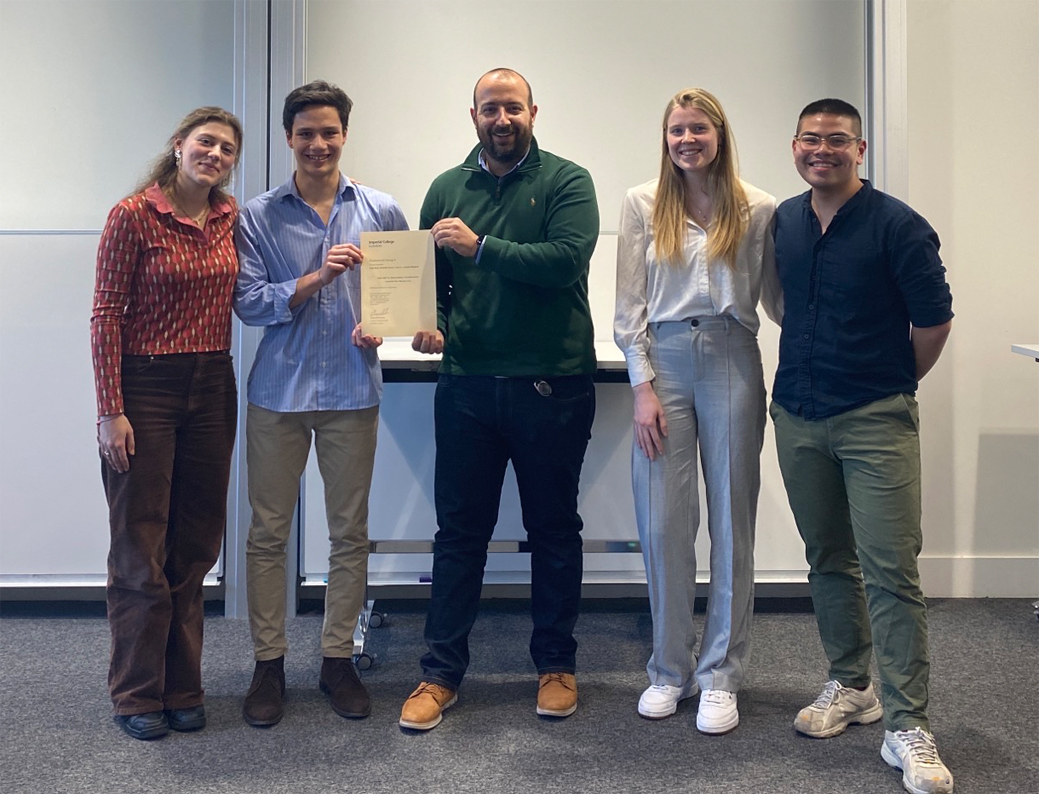
2023 Award for Best Business Case
with Ford Motor Company’s Dimitrios Chantzis
Advantages of the MPT course
The MPT course offers numerous advantages, making it a standout choice for students. Let’s explore some of the most significant benefits:
Exposure to Industry 4.0
This course equips students to excel in the Industry 4.0 era. The IT simulation skills previously discussed are invaluable in developing and improving aspects of today’s stamping industry. As future managers, students gain a comprehensive understanding of digitalization within the process chain. Consider the critical concern of carbon emissions in manufacturing. The course teaches students to assess and mitigate carbon emissions in processes like aluminum stamping, addressing factors such as press and paint bake furnace emissions. This knowledge is pivotal in calculating and reducing the carbon footprint of manufacturing processes.
Enhanced employability
By focusing on industry-relevant learning, the course significantly improves students’ employability. Interaction with industry experts keeps students abreast of current skill demands and development strategies. Moreover, industry guests often scout for talent within the course, enhancing students’ prospects of securing desirable positions immediately after graduation, often outperforming peers from other institutions.
Higher salaries
The course’s blend of fundamental, theoretical, and practical knowledge makes its graduates highly sought after. With skills like basic FE simulation and familiarity with cutting-edge technologies, these graduates are well-prepared for the industry’s future shifts. Consequently, they often command higher starting salaries, reflecting the added value they bring to employers.
Strategic industry insights
Projects within the course foster a strategic, executive-level perspective. Tasked with developing business models as hypothetical plant managers, students broaden their focus beyond theoretical concepts. They learn practical aspects like rental and energy costs, aligning their projections with real-world industry standards. This comprehensive understanding of cost analysis, including rent, labor, and energy expenses, primes students for roles in consultancy and high-level management, often accelerating their job placement compared to peers.
Conclusion
Imperial College London has distinguished itself as the University of the Year for two consecutive years. Its reputation is further solidified by ascending to the 6th rank globally this year, up from its previous rank as 7th.
In contrast to other courses that offer a broader but less focused curriculum, the MPT program stands out. Many courses attempt to cover a wide array of manufacturing technologies in a limited timeframe, which often results in a superficial understanding and lacks depth. Additionally, these programs may fall short in imparting practical knowledge or insights into contemporary industry production practices.
The MPT course, however, sets itself apart by offering an in-depth exploration of FE simulation, a skill increasingly in demand among new engineers. Its curriculum is meticulously designed to produce engineers who are not just academically proficient but also industry-ready. This focus on practical, applicable skills is a defining characteristic of an exceptional and effectively managed course, making MPT a unique and valuable offering at Imperial College London.
On behalf of our readers of FormingWorld.com, we thank the authors: LiLiang Wang, Michael Bluck and Julie Varley, Department of Mechanical Engineering, Imperial College London, London, SW7 2AZ, UK



